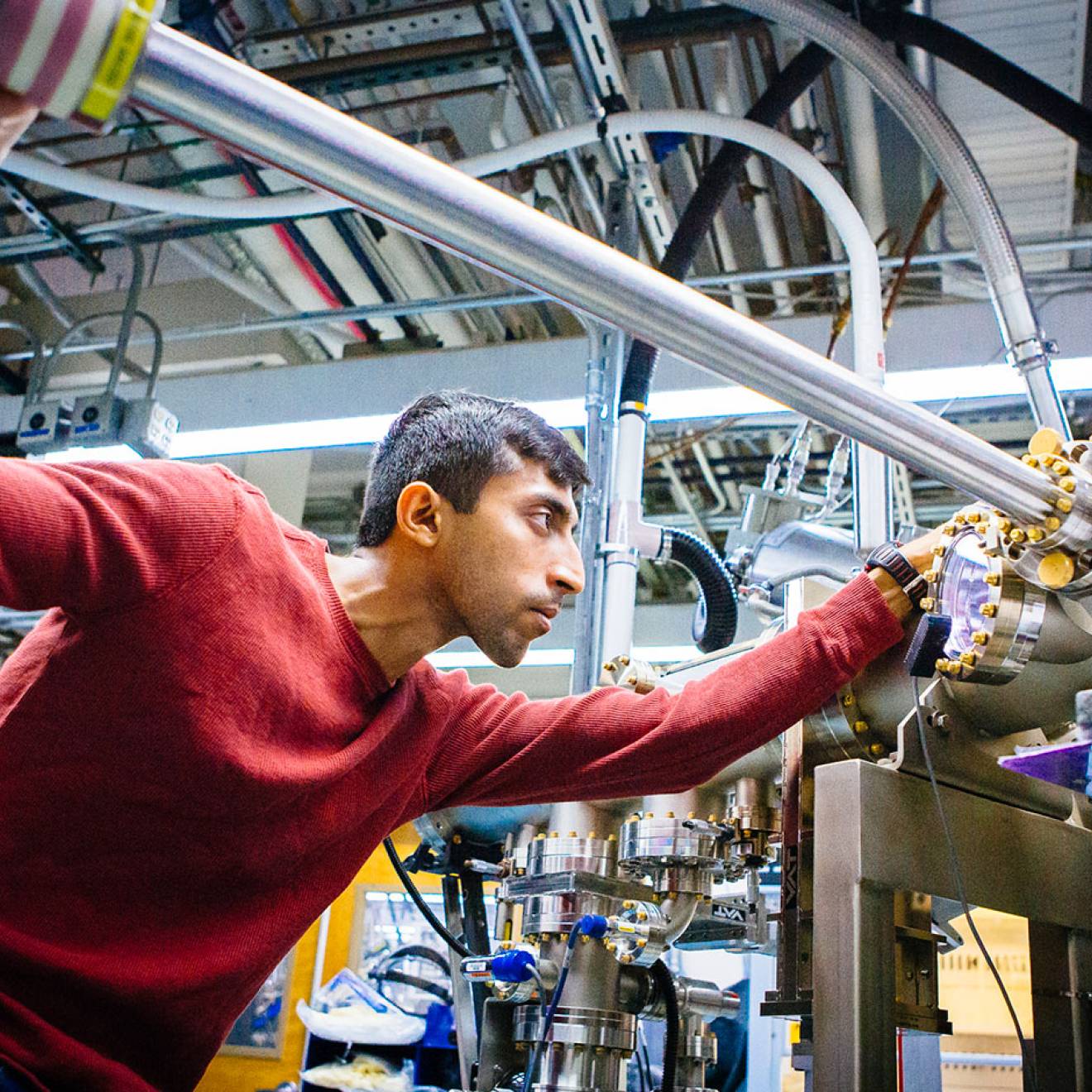Cathy Cockrell, UC Berkeley

Sarah Funes’ “million-dollar question” is how to get minorities engaged in the electoral process.
Which is why, though she’s still getting her bearings at Berkeley, the transfer student has been hell-bent all fall on registering new voters and, now, on getting them to turn up at the polls Nov. 4.
For the common refrain that voting doesn’t matter, Funes has no patience. “It does matter,” she insists. “People have died for the right to vote.”
Take Vernon Dahmer, she says — an African American civil rights leader in Mississippi whose home was firebombed in 1966. “He said, ‘If you don’t vote, you don’t count.’ He believed voting was a catalyst for being part of society.”
A political-science major (with a double minor in public policy and global poverty and practice), Funes traces her political passion to being “Latin, a woman and disabled…. I want to be able to dictate what I do with my own body. I want my culture to be represented. I want to elect people who look like me.”
A towering presence
On her way to class or voter-engagement events, Funes is hard to miss. At the age of 10, she was diagnosed with a brain tumor; after numerous surgeries, she remained paralyzed on one side. Today she navigates atop a two-wheeled Segway that brings her to 6’3″ — which she calls “my real height, not 5’4″.
As a girl who loved basketball and track, her diagnosis was the “end of my life as I knew it,” Funes recalls. “I was never going to be able to run again…. I had to accept what was happening to me.”
Acceptance took time, and crystallized in high school, when she was among 60 young Californians chosen to take part in a statewide disability-rights forum. There she met “people of all disabilities” — little people, people with bone disease, people who’d had strokes or lived with muscular dystrophy. “It really hit home that together we could make a change,” she recalls.
It was a turning point for Funes. “This is my life and I’m going to have to make the best of it,” she realized. “I was angry and I needed to channel my anger and frustration into something positive to help myself and other people.”
To leave a legacy
Advocacy became her channel.
Funes was a community-college student when disabled-student programs were hit hard by budget cuts, making it difficult for her to schedule her exams. She told her story to legislators in Sacramento four times, studying on the train to keep up with her classwork while she took time away from school. “I wanted to leave the community-college system better, to help people navigate a system that was really difficult for me.”
Eventually, $30 million for disability services was restored, she says, and Funes was named “Student of the Year” by the California Association of Post-Secondary Education and Disability.
In 2010 she traveled to Syria with other young people with disabilities, who together created a disabled Muslim comic-book superhero. She serves as communications director for the Silicon Valley-based Peninsula Young Democrats, and went with them to the California State Democratic Convention earlier this year. She’s advised San Francisco’s Muni metro system on its Segway policy for riders with disabilities, made recommendations on the California Education Code, and gone to Washington, D.C. on her own dime to lobby for brain-tumor research funding.
Full circle
At the UC Berkeley Public Service Center, which was one of her draws to Cal, Funes learned about the Andrew Goodman Foundation and became one of the organization’s “Vote Everywhere Ambassadors.”
It’s a role that has brought her full circle, she says, to the struggle that inspired her early on. The foundation’s namesake is another of those who gave his life for voting rights, during 1964’s Freedom Summer campaign.
While at South San Francisco High School, Funes raised funds to join a 10-day tour of the South, where students learned about civil rights martyrs and heroes. The group visited sites where movement leaders were slain, and met many of their family members, along with veterans of the struggle like Rev. Fred Shuttlesworth and Rep. John Lewis.
“I shook his hand and said ‘I want to do what you do,'” she says of the Georgia congressman. “He said ‘You can.'”
That was “the best money I ever spent,” she says. “My life was guided because of that trip.”
To date, Funes has been a poll worker in four elections, out of 50 she’s set as a life goal. She hopes to be a part of the Public Service Center’s Cal in the Capital internship program and to spend two years in the Peace Corps after graduation.
And then maybe law school and a job with the Department of Justice Equal Employment Opportunity Program.
“These are my dreams. I’m going to make them happen my way,” Funes says. “No one pushed me to go to Berkeley. No one said ‘You have to dream big.’ I dream big because I want to.”

